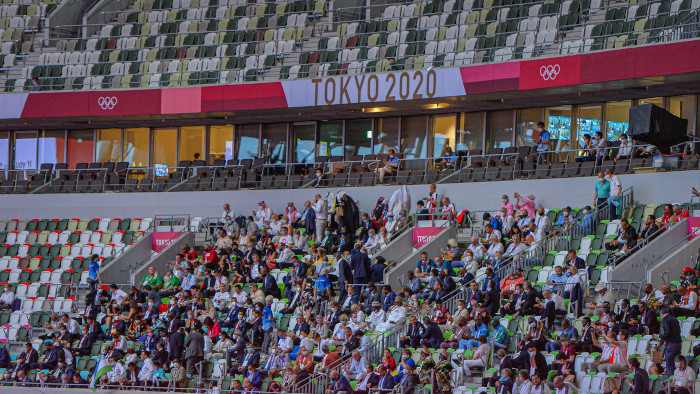The 32nd Summer Olympics have started on Friday July 23rd in the Japanese capital Tokyo, and will continue until August 8th. The games originally scheduled for the year 2020, were postponed due to the Coronavirus pandemic and they will be held largely behind closed doors, with no public spectators. 41 competitors will represent Slovakia - the smallest team since Slovakia became an independent state in 1993.
Nine track and field athletes form the largest part in the national team, with Matej Tóth being the biggest candidate for winning a medal. The 38-year-old race walker will be defending gold medal from Rio de Janeiro. The shooter Zuzana Rehák Štefečeková and the canoe slalom competitor Matej Beňuš will be Slovakia's flag bearers at the opening ceremony night on Friday. Zuzana Rehák Štefečeková won a silver medal in women's trap at the 2008 Olympics in Beijing and 2012 Olympics in London, and Matej Beňuš won a silver medal in the C1 Canoeing at the 2016 Olympic Games in Rio de Janeiro.
Two members of the Slovak team that are currently at the pre-Olympic training camp in Urajas, are undergoing a mandatory 14-day quarantine. The reason behind the quarantine is the fact that they were identified as possible close contacts of an infected person, who flew with them on the plane to Japan. "It's nothing serious, it's just a precaution. The quarantine for both is valid from the 17th and will last until July 30," said Martin Pupiš, the head of the athletics team at the Tokyo Olympics, to the web portal atletika.sk.
Actually, Slovakia has already taken part in this year's Olympics even before the official opening. The 19-year-old archer Denisa Baránková competed on the night from Thursday to Friday. In the starting round the youngest member of the Slovak team achieved a personal record of 655 points and scored a great 12th place.
News from Tokyo indicate hot and humid weather conditions. Vladimír Baluška, the director of the National Sports Centre, where some of the Slovak athletes trained before the Olympics said that the center provided Slovak athletes with a simulation of Tokyo's climate beforehand. "In a specialised tent we simulated the challenging conditions in which our athletes will perform at this most important sports event held in Japan's capital," said Baluška.

